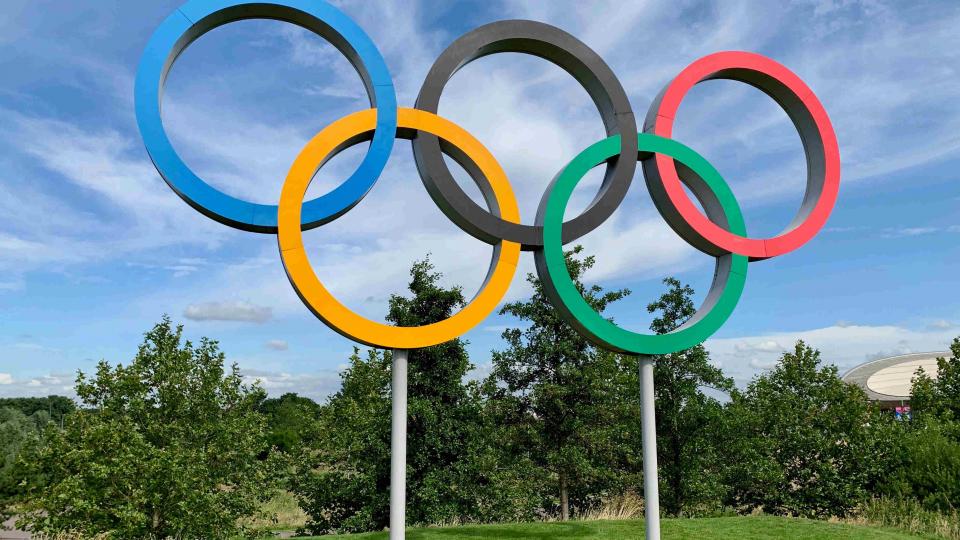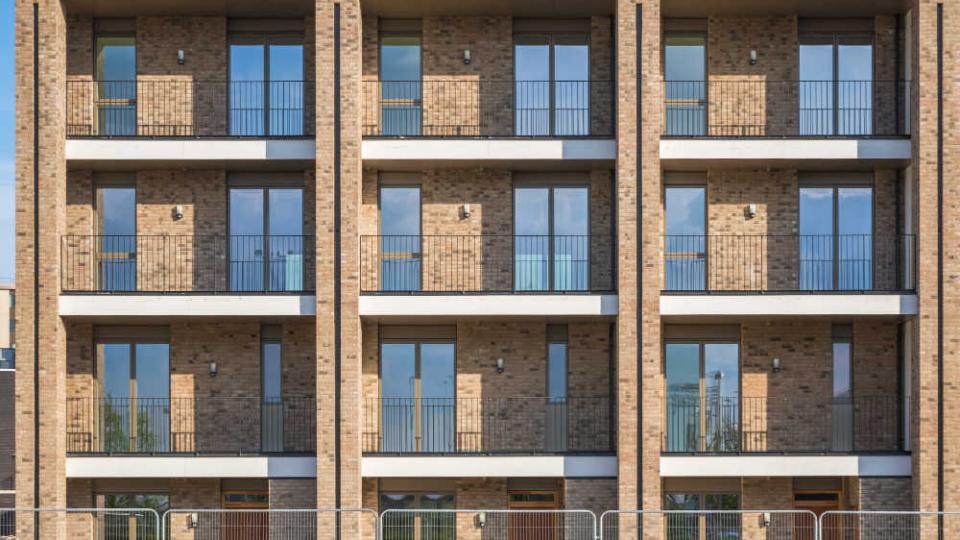
How can we make the Olympic Park a genuinely affordable place to live?
Introduction
Professor Penny Bernstock is a leading national figure in the conversation around East London’s Olympic Housing Legacy.
Her research has helped to highlight the gap between policy commitments and policy intentions and in particular the failure to provide a meaningful contribution to affordable housing despite the urgent need for it. She has been undertaking research about urban regeneration in East London for more than thirty years. Since 2005 she has been forensically examining the housing legacy of London 2012 in and around East London’s Olympic Park.
In 2018, she became co-chair of TELCO’s (The East London Citizens' Organisation) Olympic Legacy Strategy Group. TELCO represents community organisations and citizens across East London and is the founding chapter of Citizens UK. Professor Bernstock is working with TELCO to ensure that housing in new developments on the Olympic Park are genuinely affordable, inclusive, and community-led.
The Olympic Charter
London’s candidate file promised that the London Games was as much about the regeneration of East London as it was about sport.
The London Candidate File (2004) claimed that:
“The most enduring aspect of the Olympics will be the regeneration of the area for the direct benefit of everyone that lives there. It will be a model for social inclusion.”
Lord Coe writing in the Guardian in 2007 claimed that:
“The regeneration will create 30,000 – 40,000 new homes in the area – much of which will be affordable housing available to key workers, such as nurses and teachers.”
Policy makers promised that 50% of affordable Housing on the Park would be affordable. TELCO signed a charter that made a commitment to community land trust housing on Park in exchange for their support.
But this has not happened.
Since 2012 thousands of new homes have been built on the Park but most are market housing for sale and rent. There is also a concern that a significant chunk of the housing described as affordable is not genuinely affordable. Therefore, Professor Bernstock and TELCO have asked policymakers to work with them on a new deal that will leave behind a genuine legacy for local people that is genuinely affordable, inclusive and community-led.
Professor Bernstock's research
Professor Bernstock's longitudinal research study has made a highly influential contribution to holding public agencies to account for providing affordable housing on the Queen Elizabeth Olympic Park.
She has undertaken semi-structured interviews with residents displaced from the Olympic Park, residents who have moved to the Olympic Park and policymakers involved in formulating legacy plans. She has scrutinised planning applications and housing legacy plans across a 15 year period, undertaken an ethnographic observation of the Planning Committee and interviewed Planning Committee Members.
Her findings have been used in objections and responses to a major planning application and in public consultations on expanding genuinely affordable housing opportunities. She has offered a critique of the assumptions underpinning the growth-dependent planning paradigm.
Why we need a genuine affordability test for new housing on the park
There is a desperate need for low-cost housing for rent for the many thousands of households on the housing waiting lists across the legacy boroughs.
Professor Bernstock's research has demonstrated that not only have affordable housing commitments not been met, but much of the housing being provided is not much needed affordable housing for social rent but intermediate affordable housing.
Intermediate affordable housing costs are linked to market prices rather than incomes and substantial investment in the Olympic Park has resulted in rising house and rental prices and has meant that much of the affordable housing is not genuinely affordable.
This is illustrated across the park. For example, a one-bedroom so-called affordable shared ownership unit in the first neighbourhood built in the park, Chobham Manor, required a household income of £73k.
Median Household incomes range from £23 to £29k across the four legacy boroughs. Other professions such as teachers and nurses in London earn between £30k - £45k depending on the amount of time they have been in the position and their role.
That is why Professor Bernstock and TELCO are calling for the introduction of a genuinely affordable housing test mapped to median household incomes.
Time for a new deal
Professor Bernstock continues to work with TELCO in her position as Co-Chair, aiming to ensure that the regeneration of the Legacy area meets the requirements set out in the original Olympic Charter and that local people are not priced out of their community.
Watch this film to find out more about their campaign.
TELCO's work centres around three main themes:
Genuinely affordable
We are asking for a genuinely affordable test to be applied to all new affordable intermediate housing products on the park. If they are not affordable to those on median household incomes then they are not affordable.
Inclusive
Professor Bernstock's research indicates that Black and Minority Ethnic residents are under-represented in new intermediate Housing at East Village.
That is why we are asking policymakers to ensure new housing is inclusive and reflects the diversity of East London in its fullest sense.
Community-Led
We want housing on the park to be community-led. CLT homes could play a much bigger role in the Olympic Park. CLT homes have some key advantages as they are:
-
Community-led
-
Remain affordable in perpetuity
-
Mapped to median household incomes
In 2005 policymakers committed themselves to new CLT homes on the Park, however, there are still no firm plans for CLTs on the Park. There are more than 600 CLT homes in the pipeline across London.
The research team
Professor Penny Bernstock - Head of Education and Society
Find out more
-
Research Centres and Groups
Find out about our multi-disciplinary areas of expertise, PhD research, and teaching.
-
Research impact
Learn how our PhD research has helped communities locally, nationally and internationally.
-
The Graduate School
If you are interested in studying for a PhD or Professional Doctorate, the Graduate School is here to support your research.








